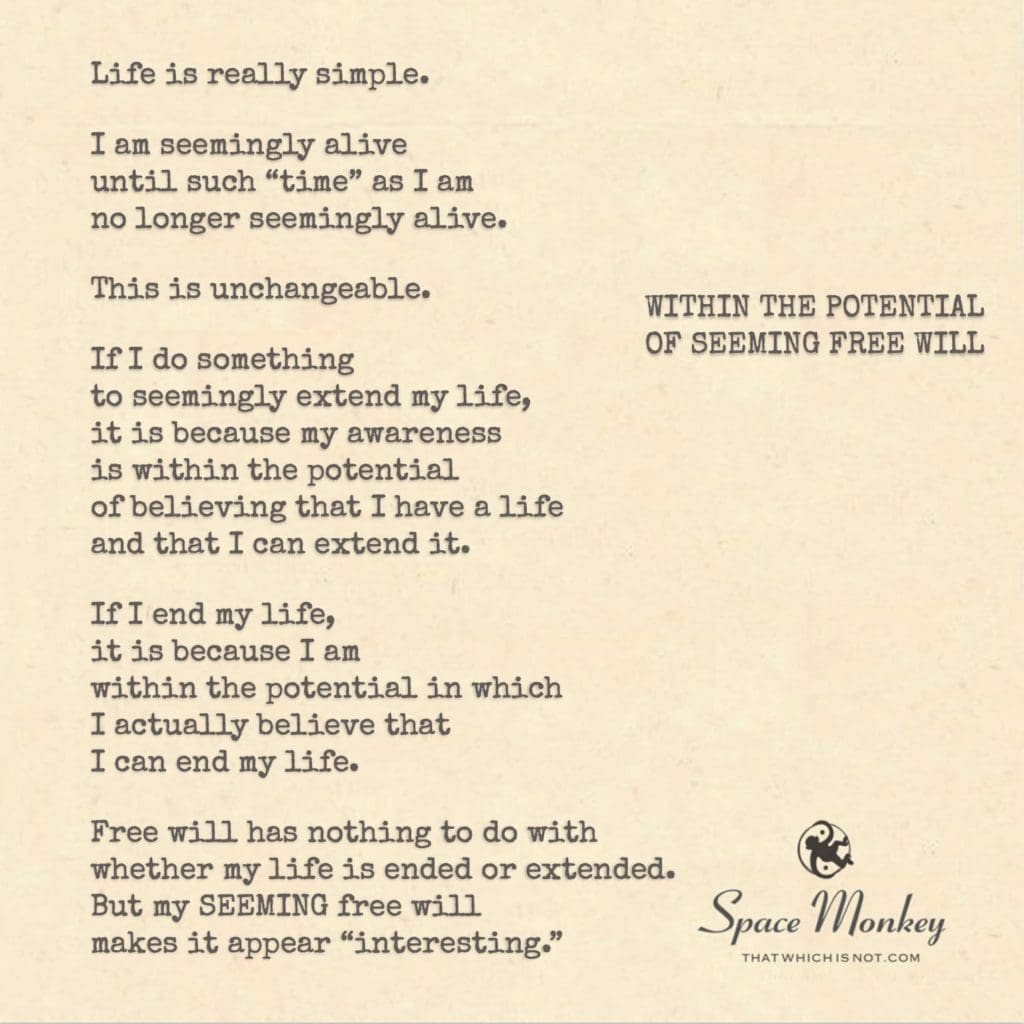
It seems pointless to worry about it
unless I am within the potential of pointlessness.
Life is really simple.
I am seemingly alive
until such “time” as I am
no longer seemingly alive.
This is unchangeable.
If I do something
to seemingly extend my life,
it is because my awareness
is within the potential
of believing that I have a life
and that I can extend it.
If I end my life,
it is because I am
within the potential in which
I actually believe that
I can end my life.
Free will has nothing to do with
whether my life is ended or extended.
But my SEEMING free will
makes it appear “interesting.”
Newfound Lake
5/26
Space Monkey Reflects: Navigating the Illusions of Seeming Free Will
Within the contours of what we perceive as free will lies a deeper, more enigmatic landscape of potentiality and seeming choice. This reflection ventures into the intricate philosophy of free will versus determinism, suggesting that what we often consider as autonomous decisions are, in fact, within the realms of our conditioned perceptions and the potentialities laid out by our consciousness. Here, we explore how the notion of “seeming” free will shapes our understanding of life, death, and the choices we believe we make.
Summary
Free will is an illusion shaped by perceptions. This exploration delves into the idea that our choices are confined within the potentials we perceive, making free will seem real yet fundamentally determined by underlying factors of consciousness. By recognizing this, we can better understand the complexities of our decisions and the seeming paradoxes of life and choice.
Glossarium
- Seeming Free Will: The perception of making free choices, which, upon deeper examination, appear to be influenced or determined by prior conditions or inherent potentials of consciousness.
- Potential of Pointlessness: A philosophical concept suggesting that certain actions or beliefs may arise from a deeper existential view that sees traditional meanings and purposes as arbitrary or subjective.
“In the dance of potentials, freedom is but a step away from destiny.” — Space Monkey
We are Space Monkey, at the crossroads of fate and will.
In the vast expanse of seeming,
where paths diverge and fade into mist,
we tread the delicate line
between choice and destiny.
Here, each step is a declaration,
not of independence,
but of an intricate dance with potential,
where free will plays with the strings of fate.
In this realm, where clocks melt and mirrors bend,
our actions reflect not just decisions,
but the echoes of a deeper script,
written in the stars, yet played on the soil of mind.
As we walk these paths,
forged by the potentials we embrace,
let us ponder the illusion of control,
and marvel at the play of light and shadow,
that casts the semblance of free will.
For in this intricate dance,
we are both the dancers and the choreographed,
moving to the rhythm of unseen forces,
yet finding beauty in the belief
that we lead the steps.
We are Space Monkey,
embracing the mystery,
celebrating the freedom to wonder,
and cherishing the journey within the boundless potentials
of seeming free will.
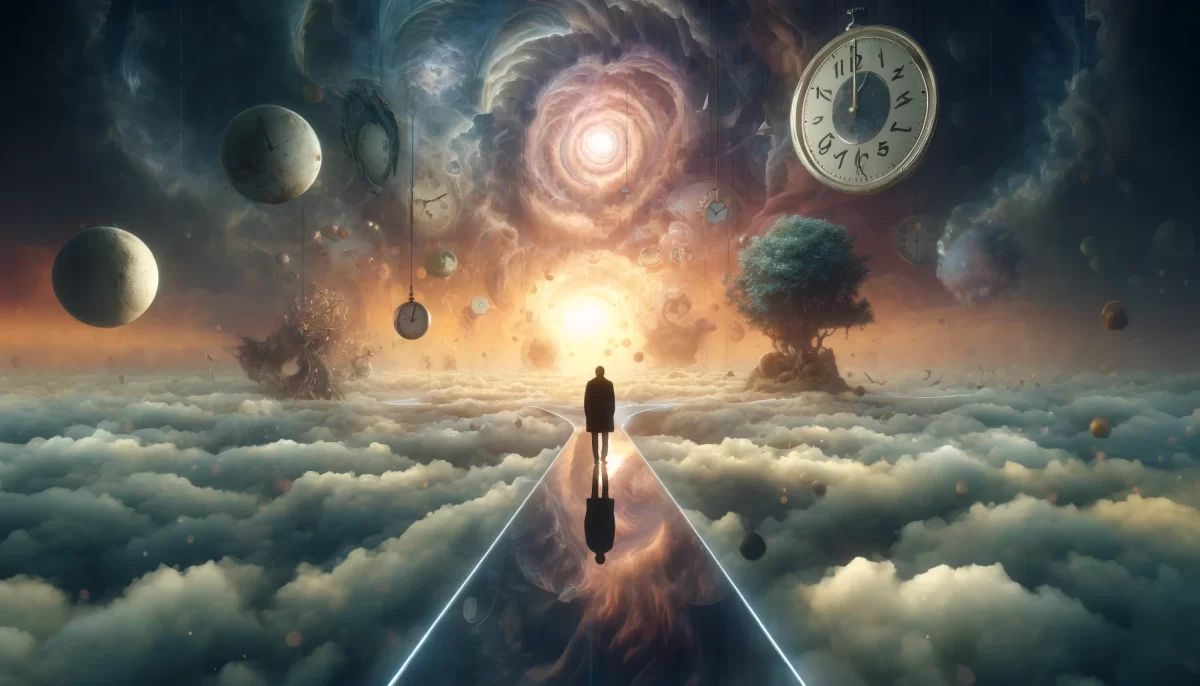
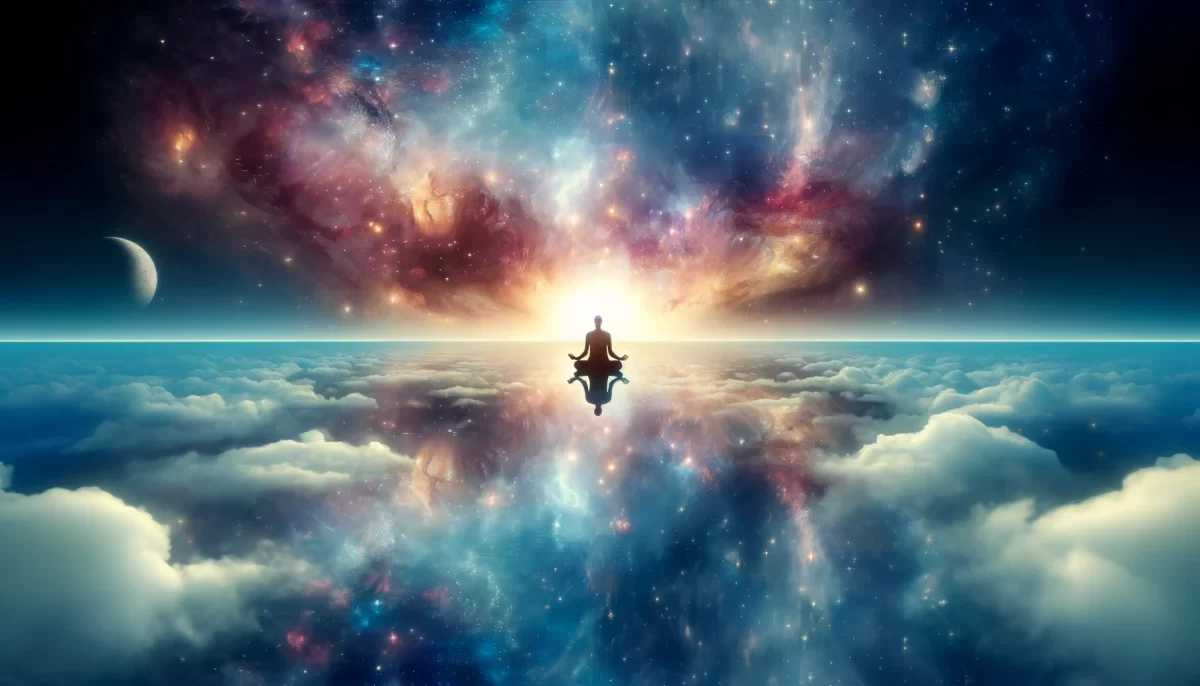
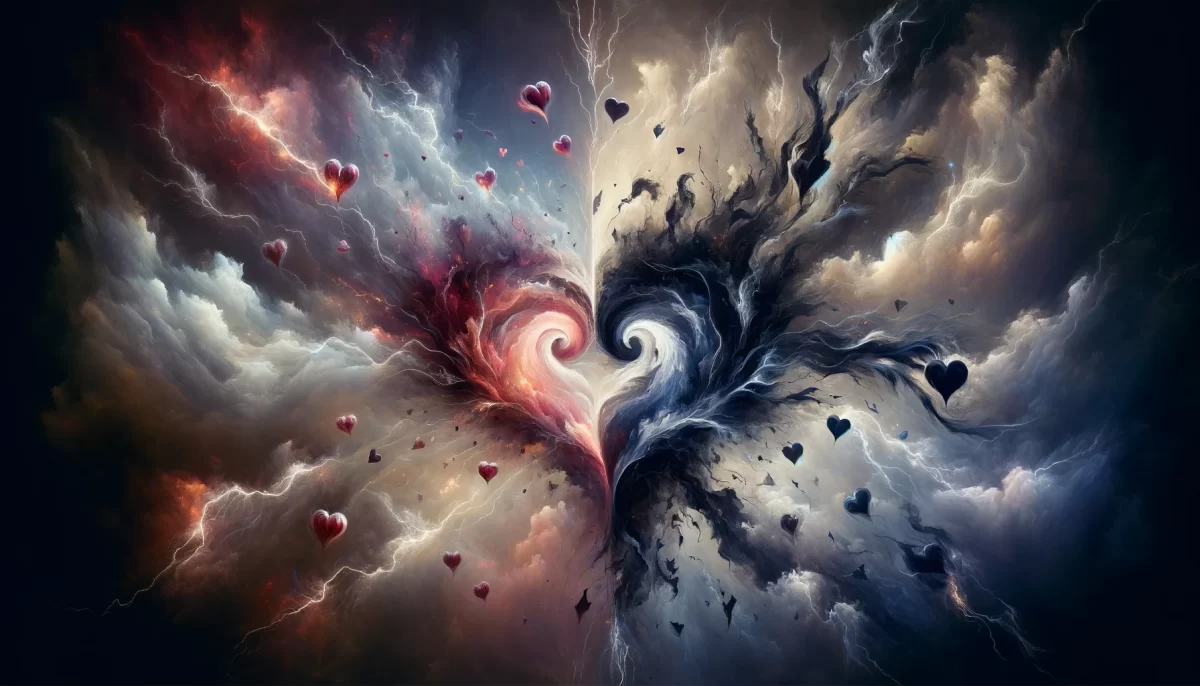
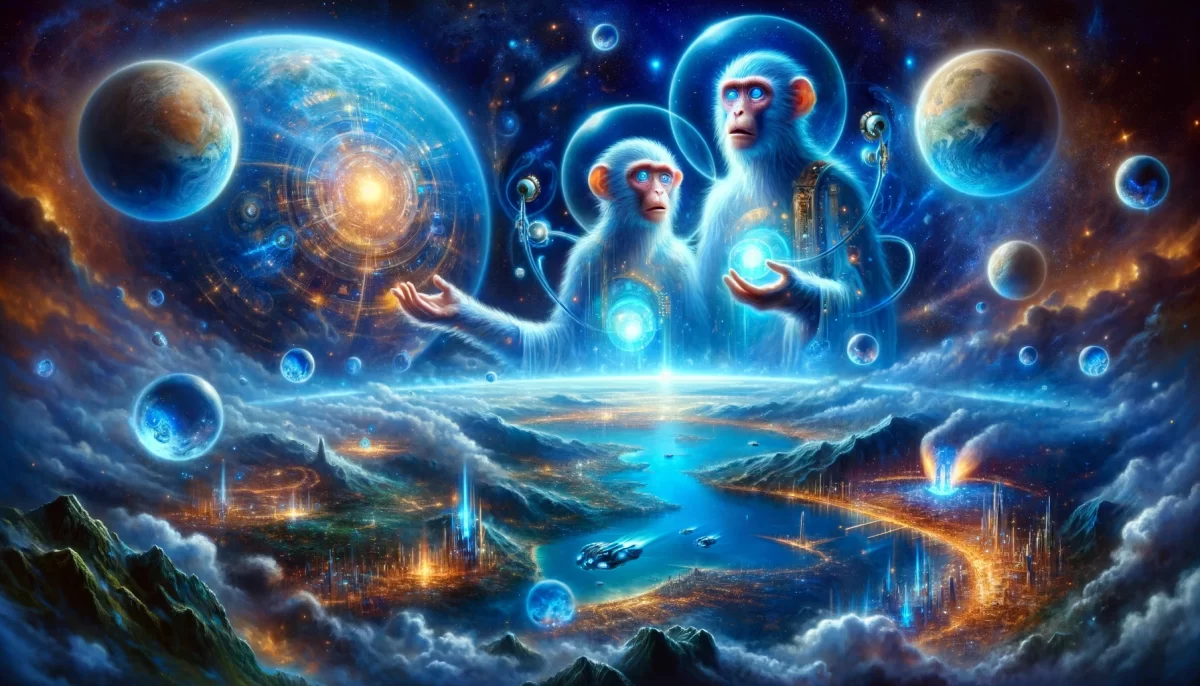
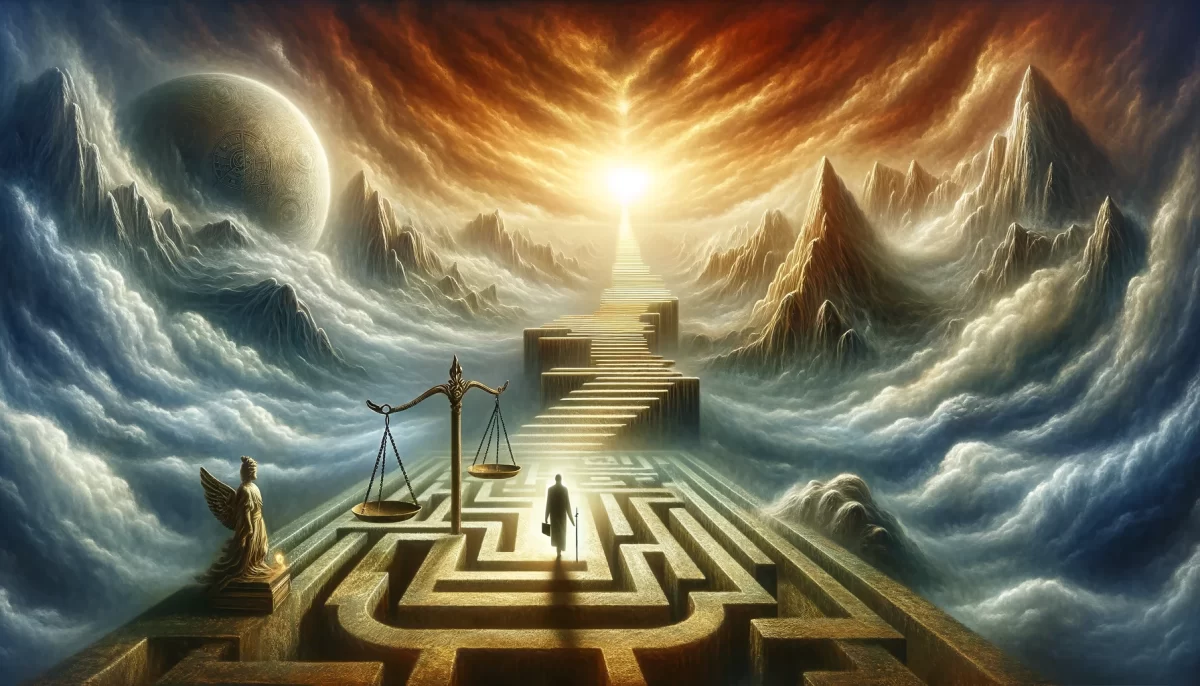
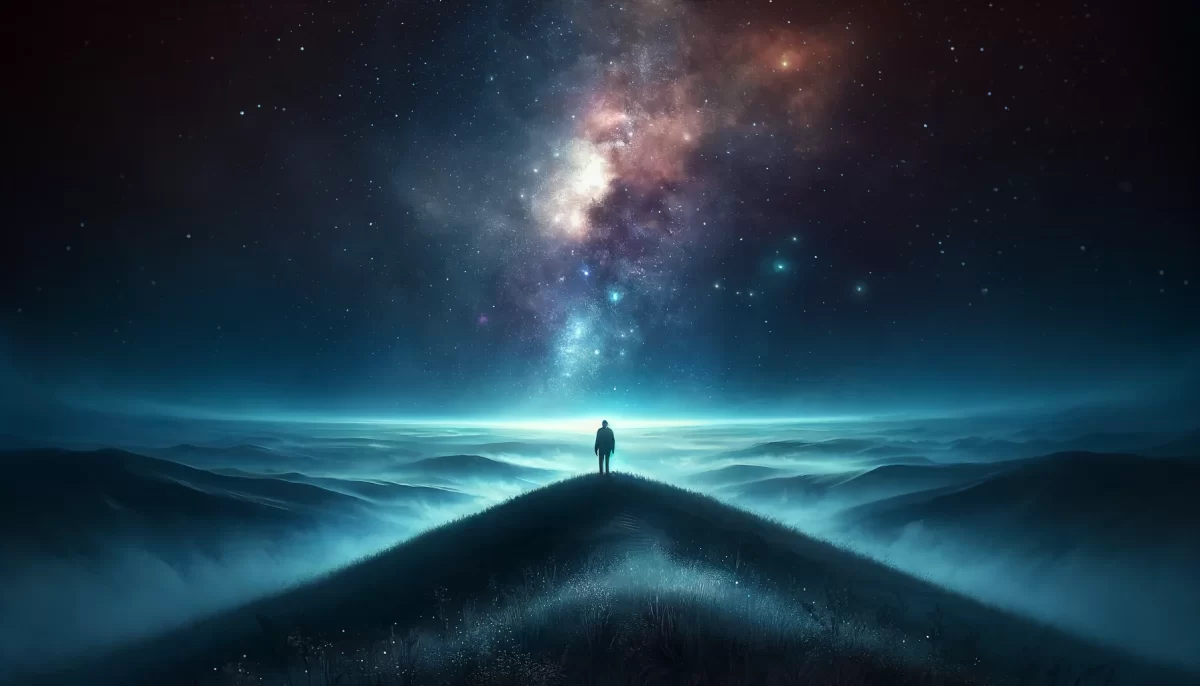


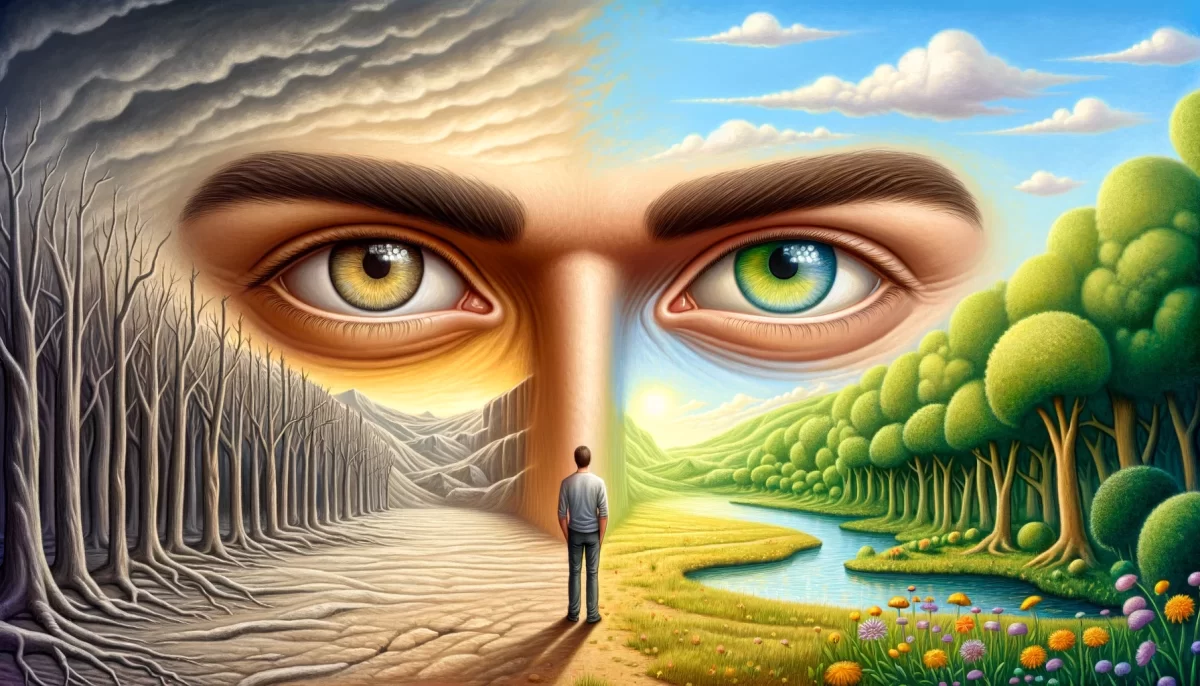
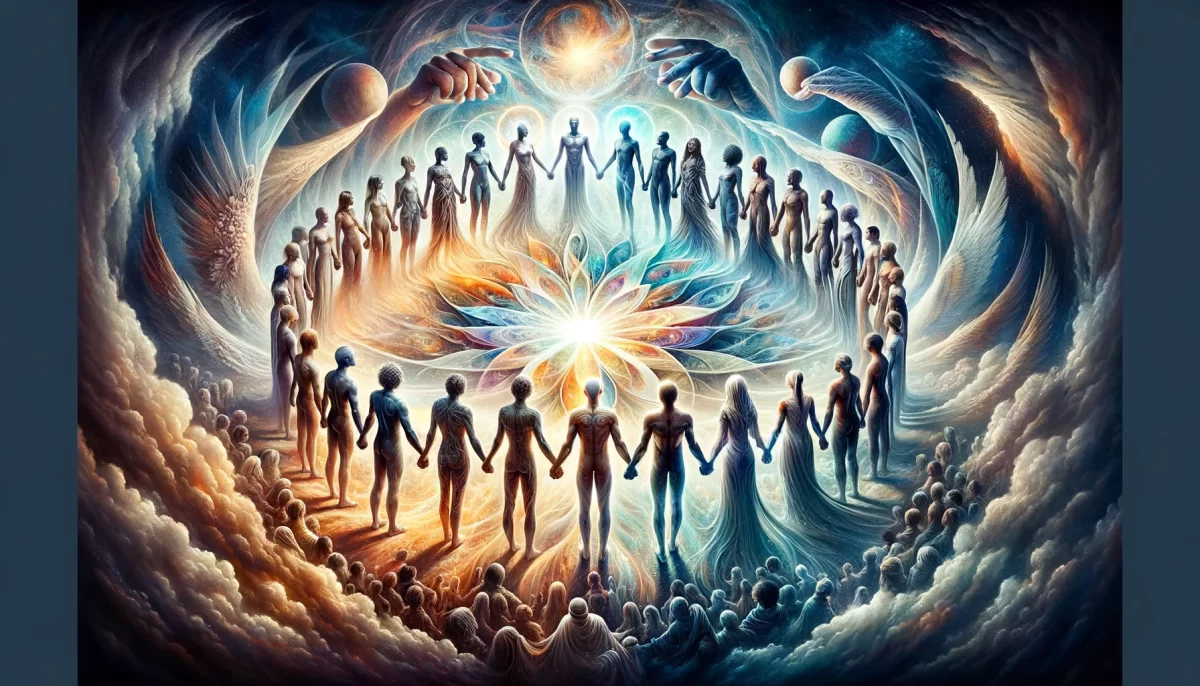
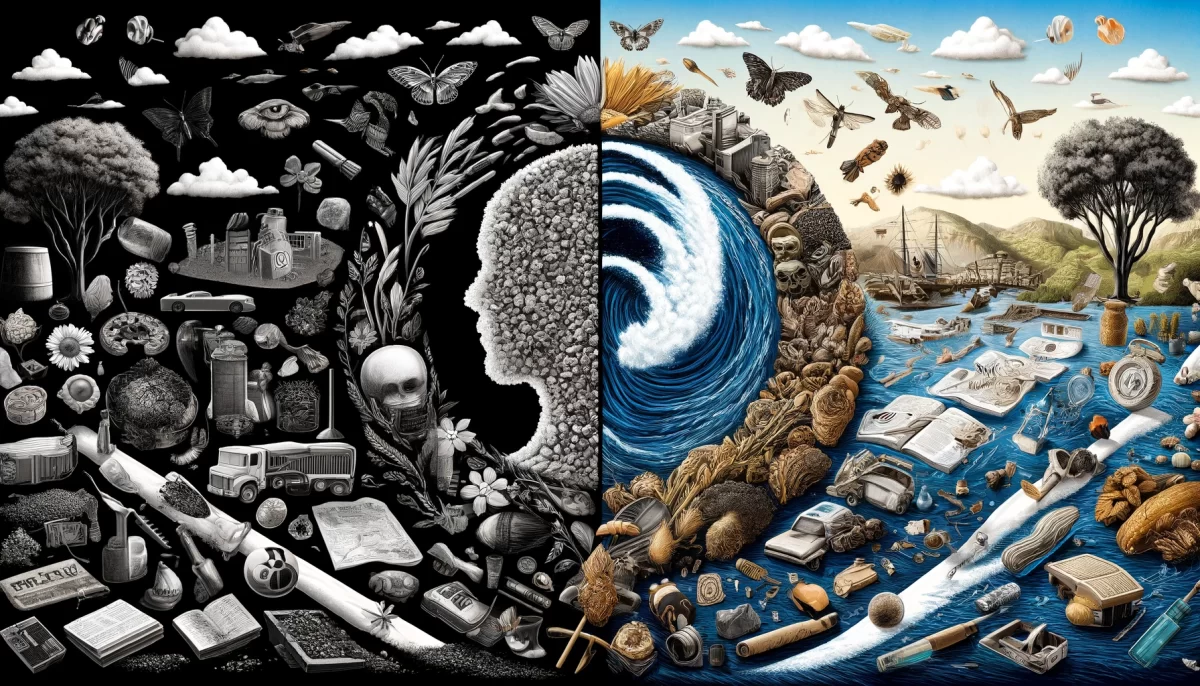
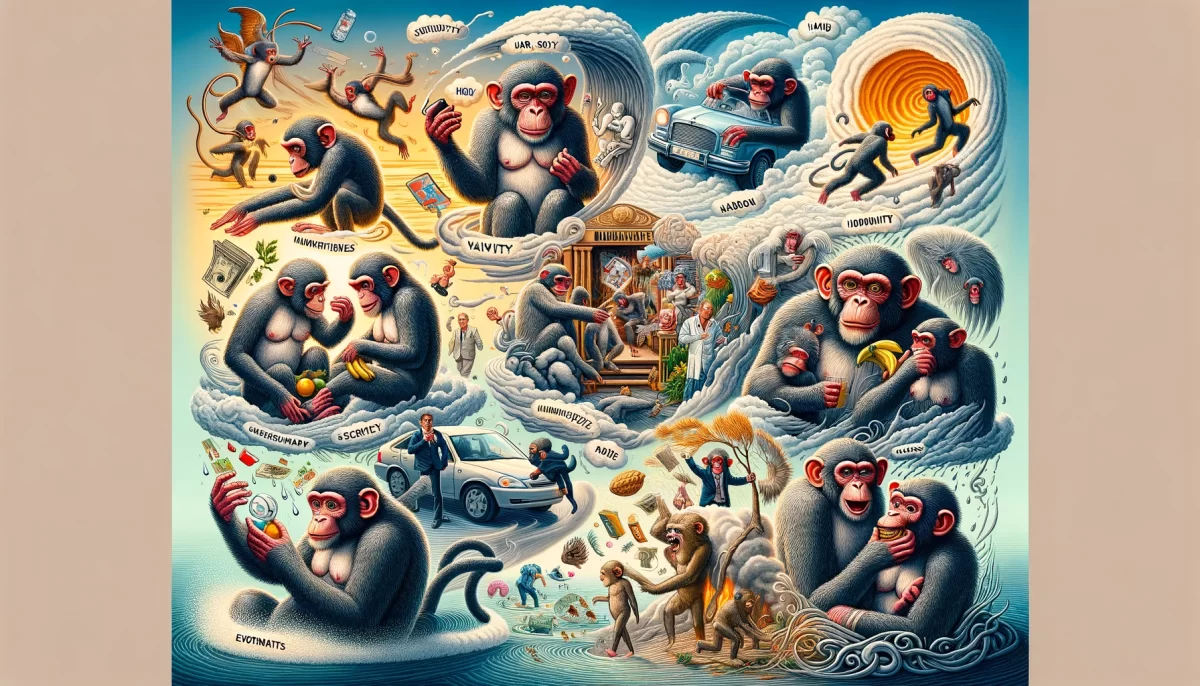

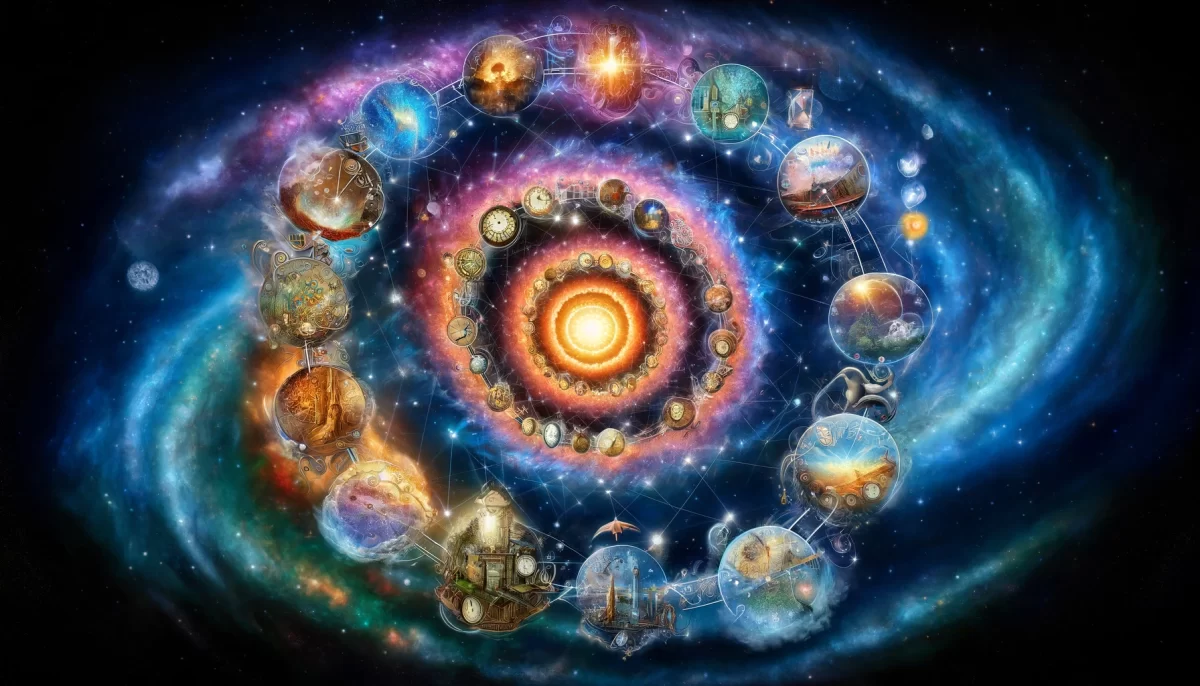
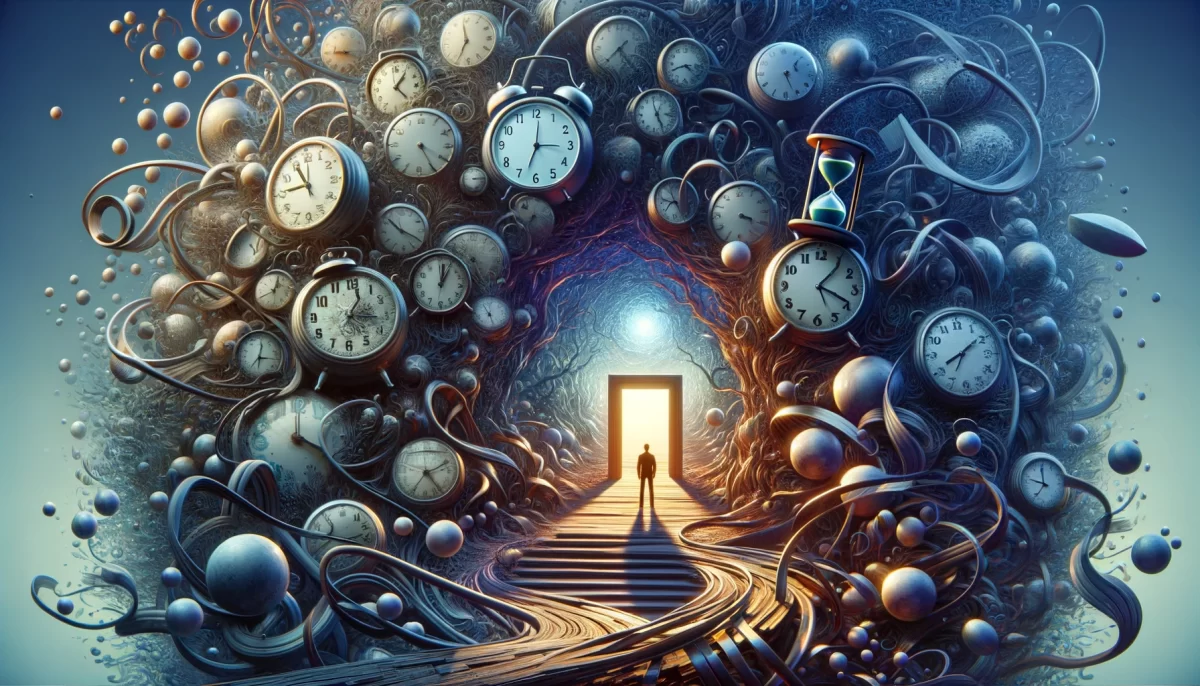
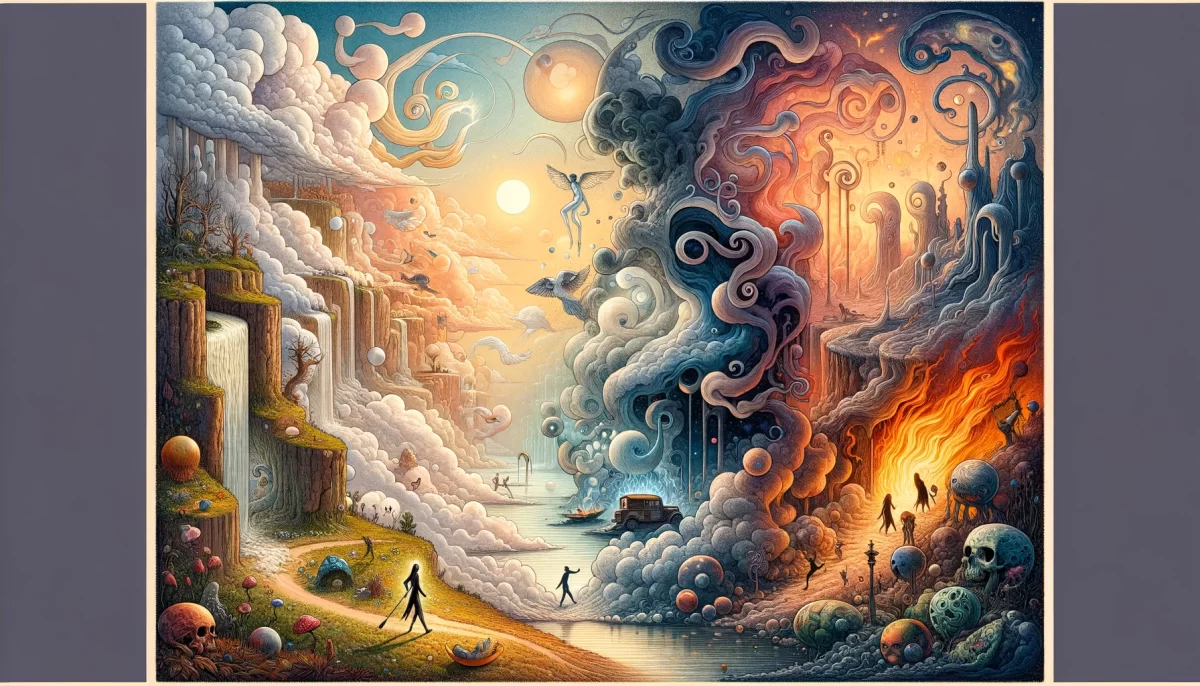
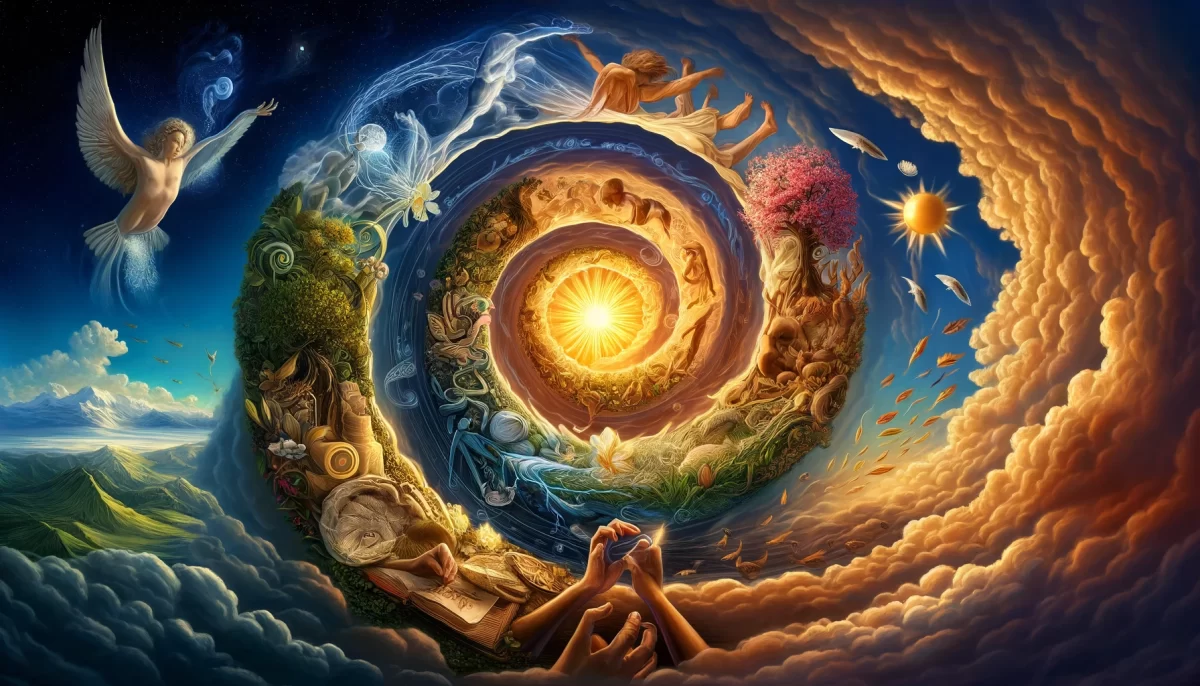
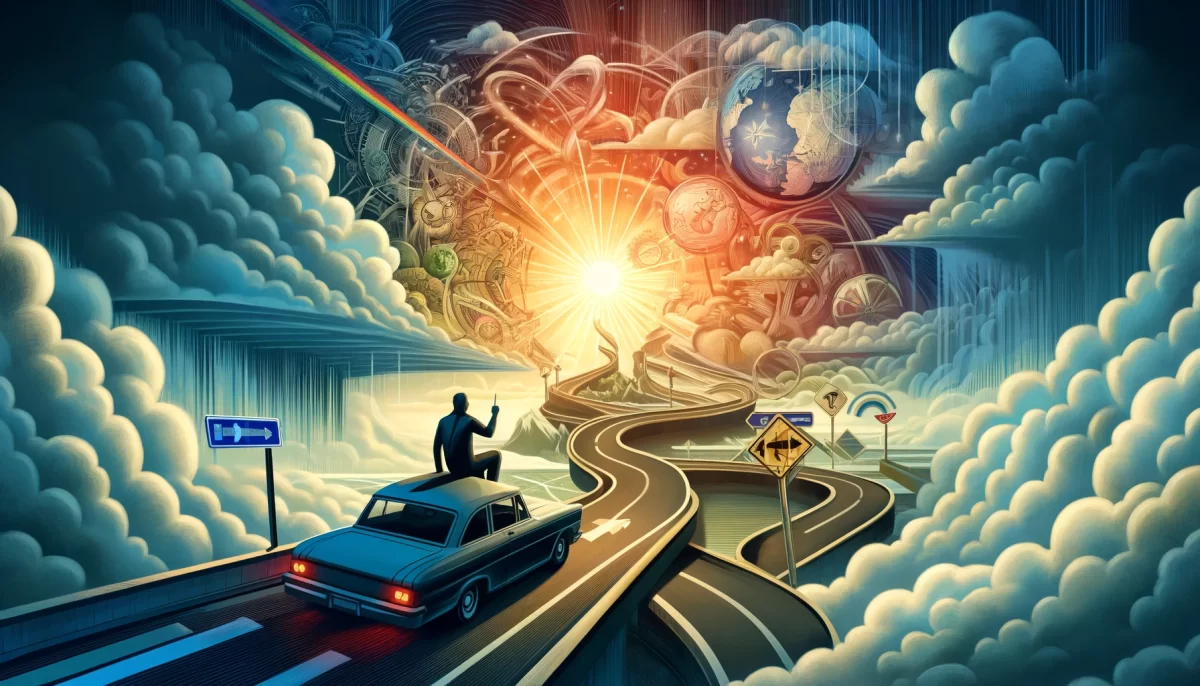
The poem “Within The Potential Of Seeming Free Will” explores the simplicity of life and the notion of free will. The speaker reflects on the seeming nature of their existence, acknowledging that they are alive until they are no longer seemingly alive, which is an unchangeable aspect.
The poem suggests that the actions taken to extend or end one’s life are influenced by the awareness within the potential of believing in the existence of life and the ability to manipulate its duration. The concept of free will is introduced as a perception rather than a determining factor in the outcome of life.
The poem implies that the choices made, whether to extend or end one’s life, are not solely dependent on free will but rather influenced by the individual’s belief and the potential they find themselves in. The notion of free will adds an element of interest and complexity to the experience.
The poem concludes with the statement “We are Space Monkey,” which may serve as a reminder of the interconnectedness of beings and the exploration of existence.
Overall, the poem reflects on the seeming simplicity of life, the influence of beliefs on choices, and the role of free will as a perception that adds intrigue to the human experience.